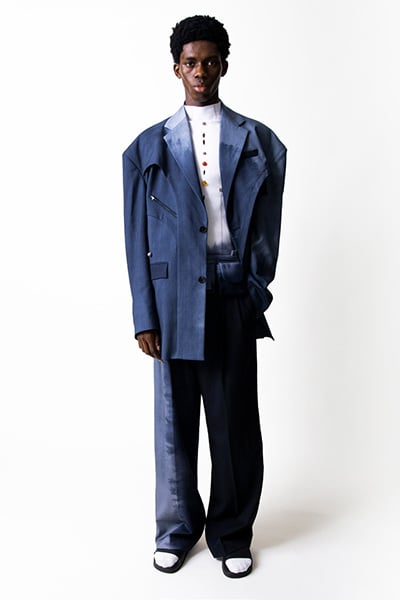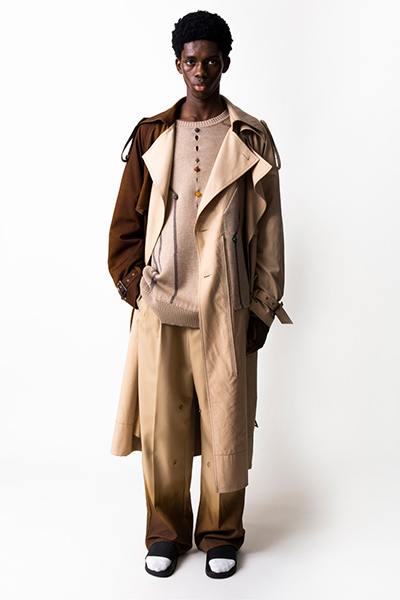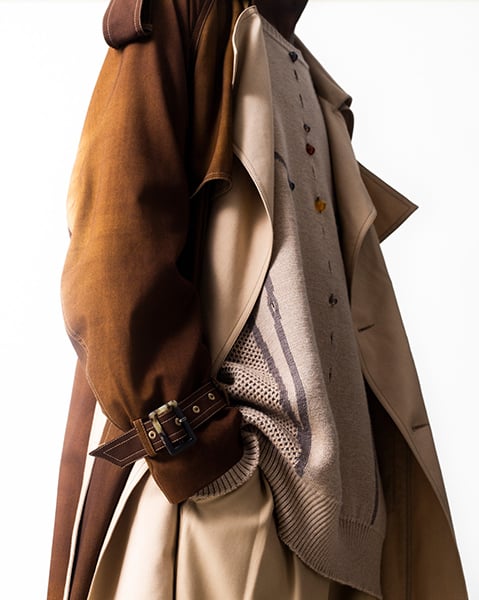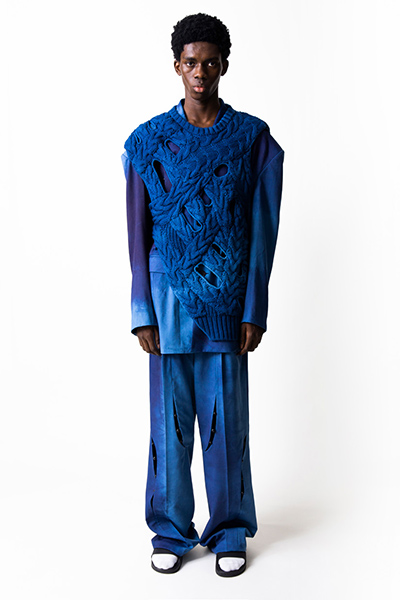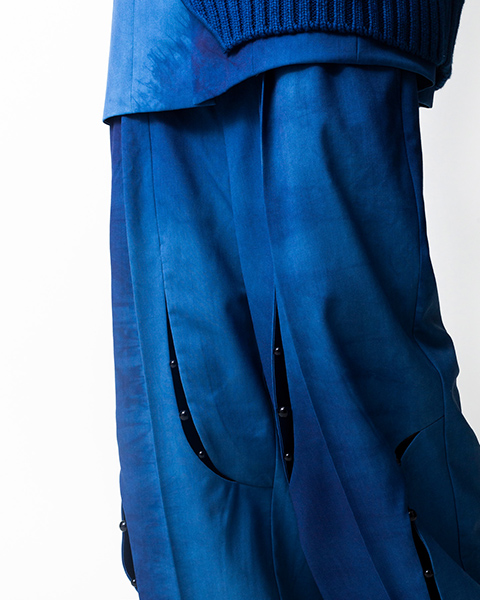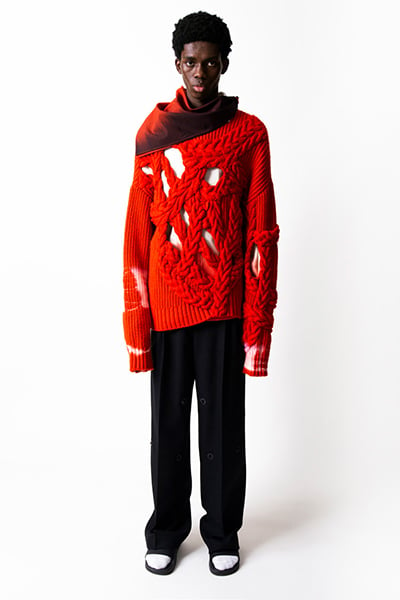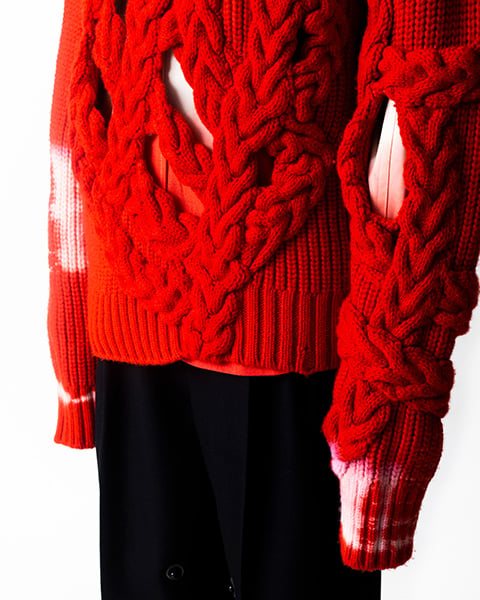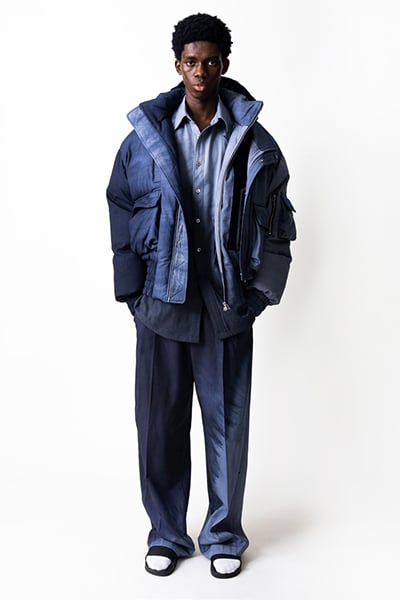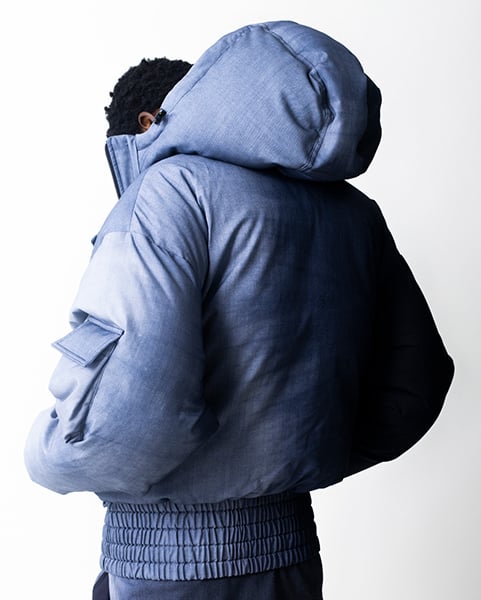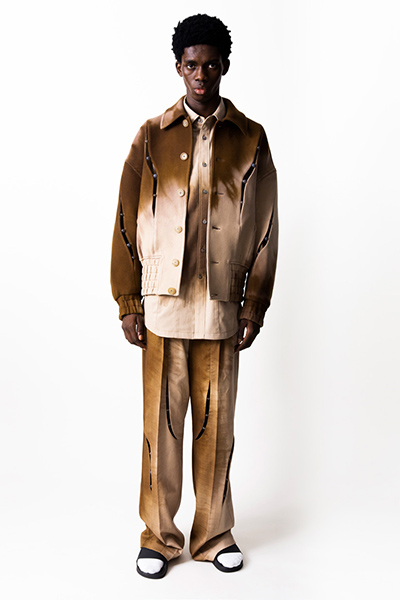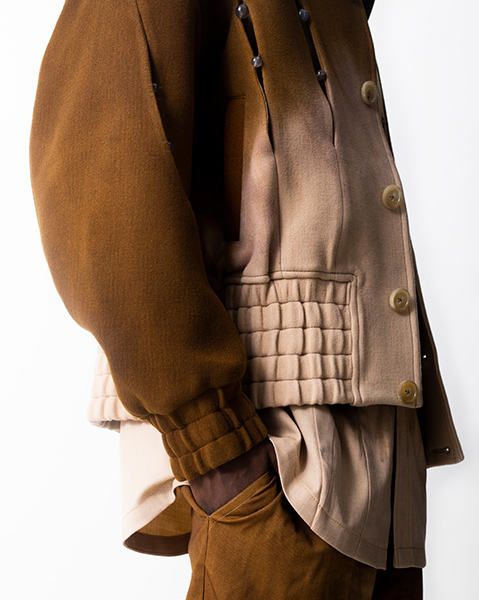Chinese-born London-based designer Feng Chen Wang describes her aesthetic as “authentic, emotional and multidimensional”, drawing on personal life experiences and her Chinese heritage to create products that are functional but at the same time conceptual.
With a mission to make Feng Chen Wang an internationally successful Chinese luxury menswear brand, Wang seeks to redefine stereotypes of “Made in China” and instead shines a spotlight on the incredible craftsmanship and artisanal techniques that exist in her country of birth. The brand focuses on creating technical outerwear and unisex clothing that is functional whilst also being conceptual and personal, drawing on the designer’s life experiences.
Lookbook
For her International Woolmark prize collection, Feng Chen Wang draws inspiration from traditional Chinese medicine and plant-based dyes to show how garments can contribute to wellbeing and mindfulness in fashion.
With the help of a traditional Chinese doctor, Wang utilised maps of the meridian system, which is about a path through which the life-energy known as ‘qi’ flows. Clothes are also embellished with gemstones such as jade and agate, placed at pressure points aimed at fostering physical and mental wellbeing, specifically reducing stress.
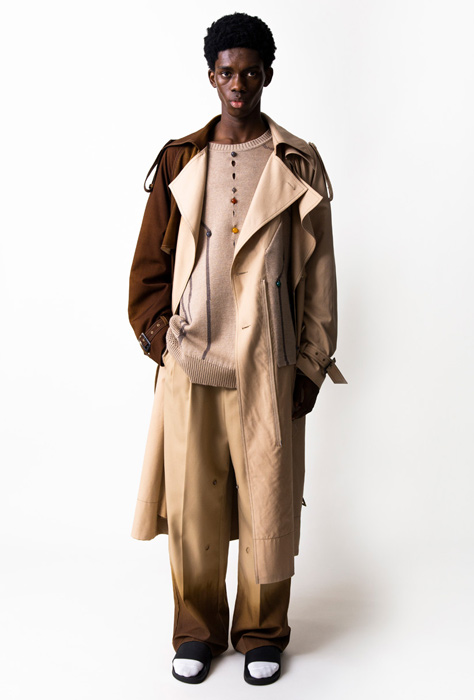
Working with a group of artisans from the local community, natural pigments were extracted from a variety of flora to create a sustainable, natural and environmentally friendly alternative to chemical dye, which was then applied to deadstock untreated wool by hand.
Functional yet conceptual, Feng Chen Wang’s International Woolmark Prize collection was created with a sense of harmony and hope in mind, both with the natural world and the human body.
“A huge part of Chinese culture is the role of traditional medicine for the treatment of illness and improving general wellbeing,” says Wang. “My approach was to connect the medical to the fashion environment through acupoint and herbal tea. Some of the garments have been designed to fit the body tightly, so the position of the agate and jade stones matches exactly the important acupoint. Other designs remove the stones but leave a knitted hole, a reminder to look after oneself and to the benefits of complementary medicine.”
“We have gone back to ancient techniques for fixing colours,” she explains. “We have selected high-quality Chinese Medicine herbal tea plants which we have put through different processes such as soaking, boiling, colouring, fixing, rinsing, and drying.”
Herbal teas are known for medicinal benefits and are used to create the pigment for dyeing, with Wang using natural, locally sourced plants from what she describes as a sustainable source which does not pollute the environment.
“We have gone back to ancient techniques for fixing colours,” she explains. “We have selected high-quality Chinese Medicine herbal tea plants which we have put through different processes such as soaking, boiling, colouring, fixing, rinsing, and drying.” The use of plant-based dyes also reduces the amount of water pollution which can be caused by traditional chemical dyestuffs.
“We use dead stock untreated wool and dye by hand in small batches with local artisans that support traditional craftsmanship and the local economy.
“Our vision is to apply this innovation to fashion clothing but also target the health and wellness sector, such as treatment and relaxation centres, sports retailers and private members clubs.”
